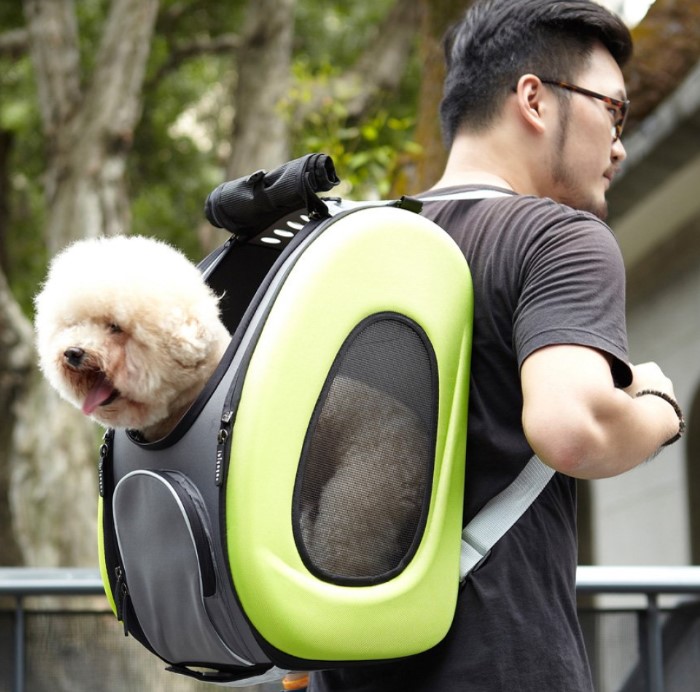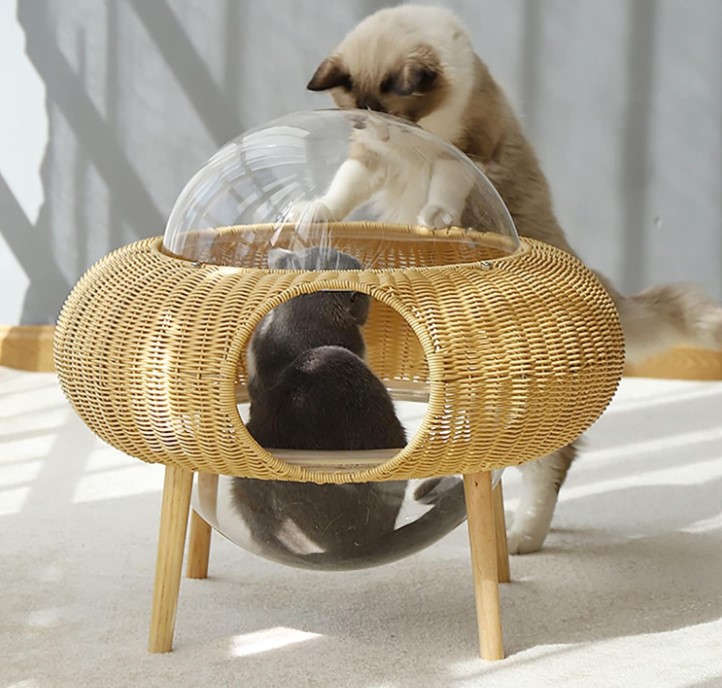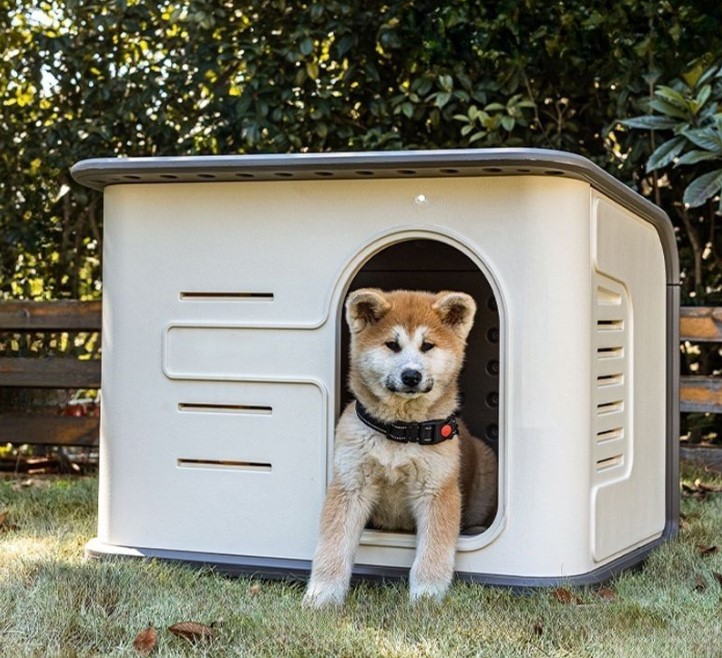A Comprehensive Guide to Raising a Happy and Healthy Kitten
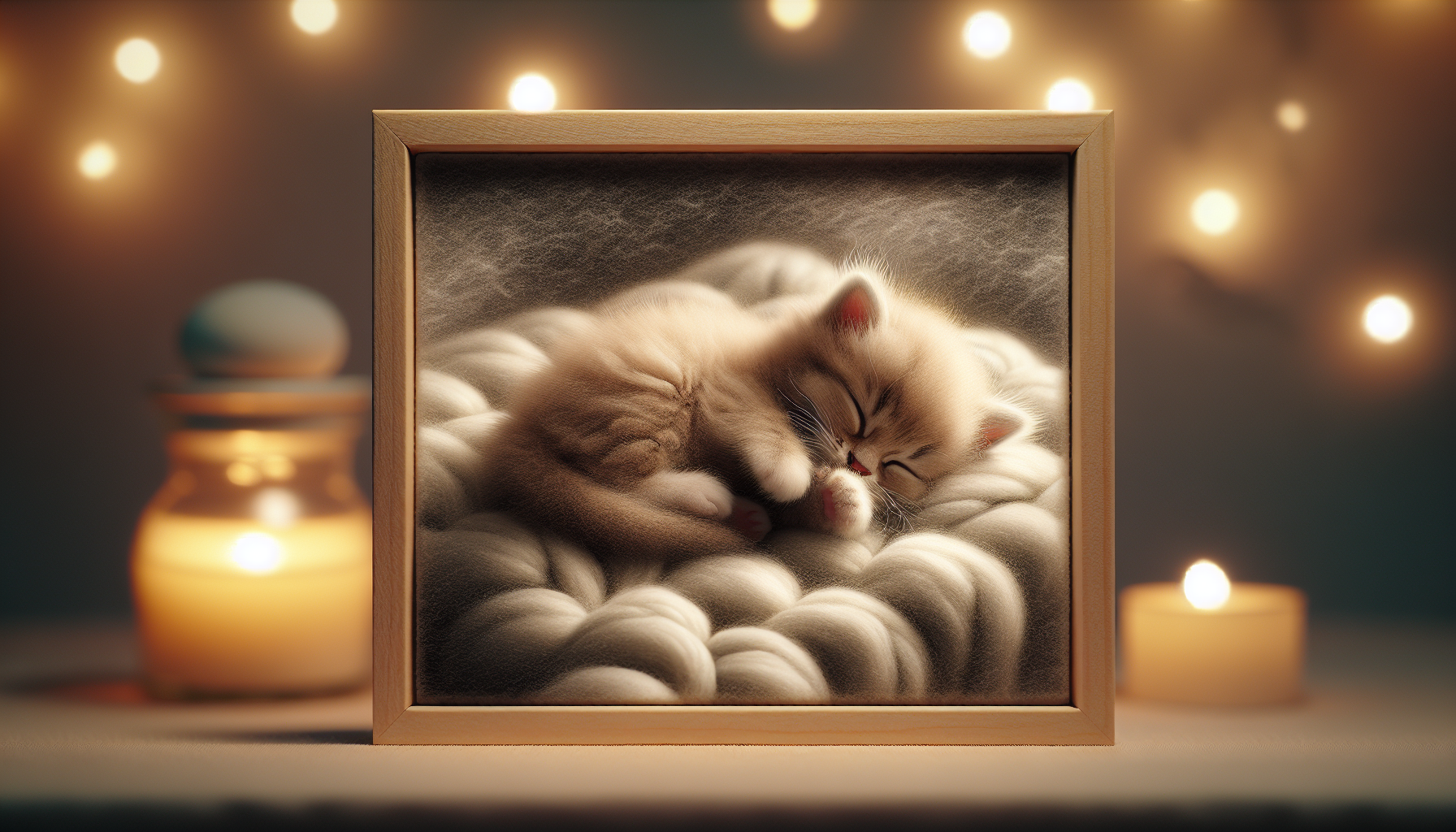
Welcome to the world of kitten parenthood! Bringing home a new six-week-old kitten is an exciting milestone, but it can also be overwhelming. As you prepare to welcome your new furry friend, it’s essential to create a safe, comfortable, and nurturing environment that promotes their physical and emotional well-being. From kitten-proofing your home to socialization and handling, there’s a lot to learn and consider. This article aims to guide you through the process of easing the transition for your new kitten and ensuring their well-being during the critical early stages of their development.
During the first few weeks, your kitten will rely on you for everything, from nutrition and hydration to comfort and companionship. By understanding their needs and providing the necessary care, you can set them up for a happy and healthy life. This article will cover the essential aspects of caring for your six-week-old kitten, including nutrition, hydration, litter training, socialization, and health monitoring.
From creating a cozy sleeping space to reducing stress and anxiety, we’ll explore the simple yet effective ways to make your kitten feel safe and loved. By the end of this article, you’ll be equipped with the knowledge and confidence to provide the best possible care for your new kitten, giving them the best start in life.
1. Preparing for the New Arrival
Preparing for the new arrival is a crucial step in ensuring a smooth transition for your kitten. Before bringing your new kitten home, it’s essential to prepare a safe and comfortable environment that caters to their unique needs. This involves more than just setting up a food and water bowl; it’s about creating a space that promotes their physical and emotional well-being.
First, it’s crucial to kitten-proof your home. This means removing any hazardous items, such as toxic substances, electrical cords, and fragile objects, that can harm your kitten. Secure any loose wires, and store cleaning supplies and medications out of reach. You should also block off areas that you don’t want your kitten to access, such as certain rooms or areas with hazardous chemicals.
Next, you’ll need to stock up on essential supplies, such as food, water, litter, and toys. Choose a high-quality food that’s suitable for your kitten’s age and breed, and consider a gradual transition plan to prevent digestive upset. You’ll also need to set up a comfortable and clean litter box, as well as provide a variety of toys and scratching posts to keep your kitten entertained and stimulated. By taking the time to prepare a safe and comfortable environment, you can help your kitten feel secure and settled in their new home.
Kitten-Proofing Your Home
Kitten-proofing your home is a crucial step in ensuring your new kitten’s safety and well-being. Kittens are naturally curious and love to explore, which can lead to accidents if your home is not properly prepared. To kitten-proof your home, start by removing any hazardous items that can be harmful to your kitten. This includes toxic substances, such as cleaning supplies, medications, and pesticides, which should be stored out of reach in a high cabinet or locked container.
Next, secure any loose wires, cords, and small objects that can be easily swallowed or tangled. Kittens love to chew, so make sure to remove any items that can be easily damaged, such as shoes, books, and fragile decorations. You should also block off areas that you don’t want your kitten to access, such as certain rooms or areas with hazardous chemicals. Consider installing safety gates or barriers to prevent your kitten from entering these areas.
Finally, make sure to remove any breakable or valuable items that can be easily knocked over or destroyed. Kittens can be clumsy, and accidents can happen, so it’s better to be safe than sorry. By taking the time to kitten-proof your home, you can prevent accidents and create a safe and welcoming environment for your new kitten to grow and thrive.
Essential Supplies for Your Kitten
When bringing a new kitten home, it’s essential to have the right supplies to ensure their care and well-being. As a responsible pet owner, it’s crucial to provide your kitten with the necessary tools and resources to thrive. One of the most critical supplies is food, and it’s essential to choose a high-quality, nutrient-rich kitten food that meets your kitten’s specific needs. You’ll also need a clean and comfortable litter box, as well as a litter that’s safe for your kitten to ingest in case of accidental ingestion.
In addition to food and litter, you’ll need to provide your kitten with fresh water, a clean and comfortable place to sleep, and a variety of toys and stimulation to keep them entertained and engaged. Toys should be safe, durable, and appropriate for your kitten’s age and developmental stage. You’ll also need to provide a scratching post to help your kitten maintain their nails and stretch their muscles. Finally, consider investing in a kitten carrier or crate to help with transportation and training.
Other essential supplies include a brush or comb for grooming, nail clippers, and a first-aid kit. You may also want to consider investing in a microchip or identification tag to ensure your kitten’s safe return in case they get lost. By having these essential supplies on hand, you can provide your kitten with the care and attention they need to thrive and grow into a happy and healthy adult cat.
2. Nutrition and Hydration for Six-Week-Old Kittens
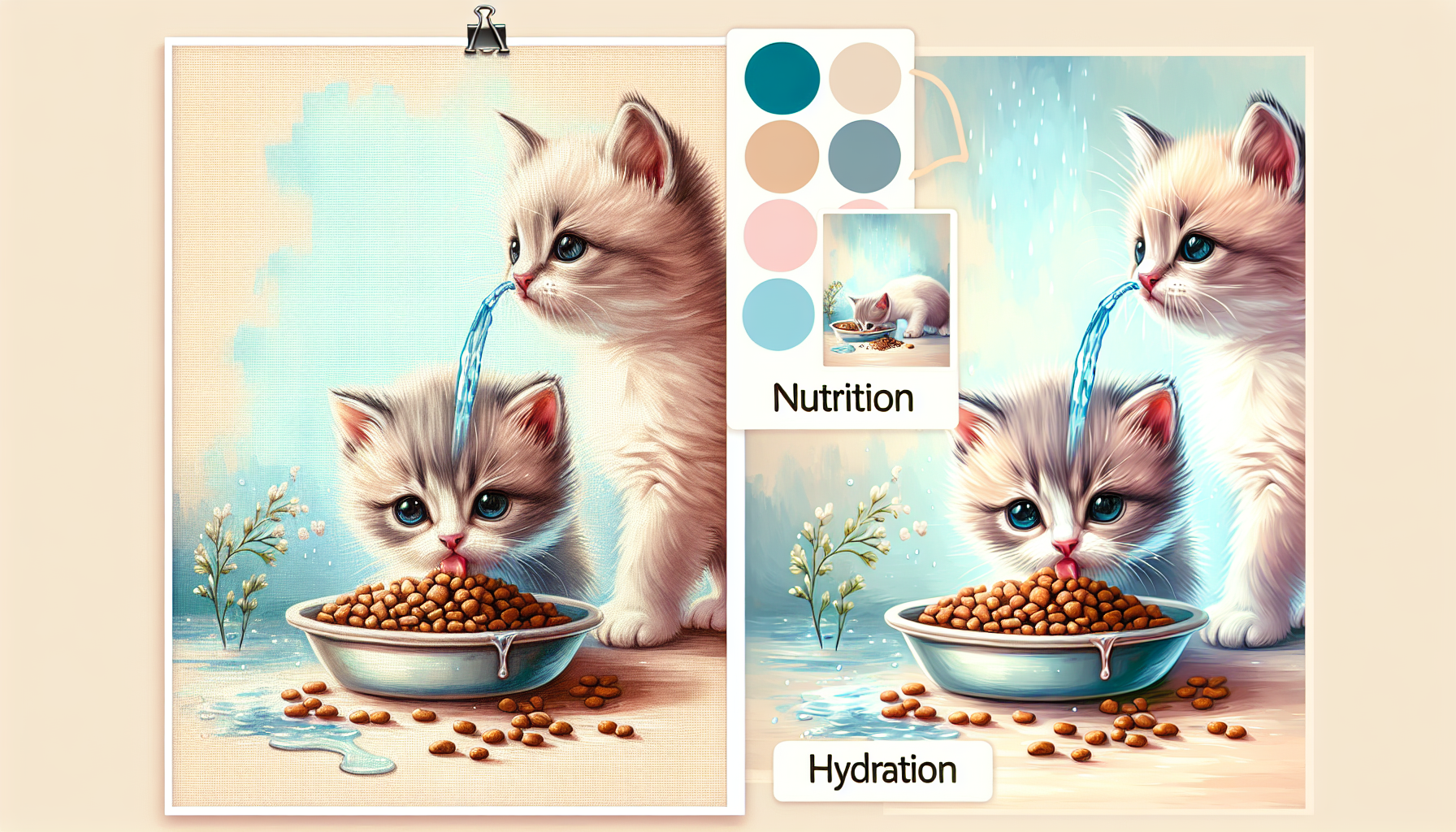
Proper nutrition and hydration are crucial for the growth and development of six-week-old kittens. At this stage, kittens require a diet rich in protein, fat, and calories to support their rapid growth and energy needs. A high-quality, nutrient-rich kitten food that is specifically formulated for their age and developmental stage is essential. It’s recommended to feed your kitten 3-4 times a day, with a gradual transition to twice a day by 4-6 months of age.
In addition to nutrition, hydration is also critical for kittens. Make sure your kitten always has access to fresh, clean water. You can also offer a small amount of milk replacer or a kitten-specific milk supplement if recommended by your veterinarian. However, do not give your kitten cow’s milk, as it can cause digestive issues. It’s also important to monitor your kitten’s weight and overall health, and adjust their diet accordingly. Consult with your veterinarian for specific dietary recommendations and guidance.
Remember, a well-nourished and hydrated kitten is more likely to thrive and grow into a healthy adult cat. By providing the right nutrients and hydration, you can support your kitten’s optimal growth and development, and set them up for a lifetime of good health.
Choosing the Right Food for Your Kitten
Choosing the right food for your kitten is a crucial decision that can impact their overall health and development. Kittens have unique nutritional needs that are different from adult cats, and it’s essential to select a food that meets these needs. Kitten food should be rich in protein, moderate in fat, and limited in carbohydrates. They also require certain nutrients, such as taurine, vitamin E, and calcium, to support their growth and development.
When selecting a kitten food, it’s essential to consider the ingredients, nutrient levels, and manufacturing process. Look for foods that are made with high-quality protein sources, such as chicken or salmon, and whole grains, such as brown rice or oats. Avoid foods that contain fillers, by-products, or artificial preservatives. It’s also important to consider your kitten’s individual needs, such as their age, breed, and health status. Consult with your veterinarian for expert recommendations on the best food options for your kitten.
Some popular kitten food options include Hill’s Science Diet, Royal Canin, and Wellness Core. These brands offer a range of formulas that are specifically designed for kittens, and they are made with high-quality ingredients and nutrients. Remember, every kitten is different, and what works for one kitten may not work for another. Be patient, and work with your veterinarian to find the best food for your kitten.
Hydration and Litter Training
Hydration is a crucial aspect of your kitten’s health, and encouraging them to drink enough water is essential. Kittens need access to fresh, clean water at all times, and it’s recommended to place multiple water sources throughout your home. You can also try adding a small amount of tasty liquid, such as chicken or beef broth, to their water to make it more appealing. Additionally, feeding your kitten wet food can help increase their water intake.
Litter training is another important aspect of your kitten’s care. Kittens typically learn to use a litter box by watching their mothers, but they may need some guidance and patience from you. Start by placing your kitten in the litter box after meals or playtime, and praise them when they use it correctly. Be prepared for accidents, and don’t scold or punish your kitten if they have an accident. Instead, encourage them to use the litter box by making it a safe and comfortable space.
Some important tips for litter training include using a litter box that’s large enough for your kitten, placing it in a quiet and private area, and scooping it daily to keep it clean. You should also avoid placing the litter box near your kitten’s food and water bowls, as this can cause them to avoid using it. By following these tips and being patient with your kitten, you can help them learn to use the litter box correctly and stay hydrated and healthy.
3. Creating a Comfortable and Safe Environment
Creating a comfortable and safe environment is essential for your kitten’s growth and development. A warm and cozy space can help your kitten feel secure and relaxed, which is critical for their overall health and well-being. Start by providing a comfortable place for your kitten to sleep, such as a soft blanket or bed in a quiet and cozy area. You should also ensure that your kitten has access to a warm and safe place to hide, such as a cardboard box or a small tent.
In addition to providing a comfortable space, it’s also important to ensure that your kitten’s environment is safe. This means removing any hazardous items, such as toxic substances, electrical cords, and sharp objects, that can harm your kitten. You should also block off areas that you don’t want your kitten to access, such as certain rooms or areas with hazardous chemicals. By creating a safe and comfortable environment, you can help your kitten feel secure and relaxed, which is critical for their overall health and well-being.
Finally, consider adding some toys and stimulation to your kitten’s environment to keep them entertained and engaged. This can include toys, such as balls and feather wands, as well as scratching posts and climbing structures. You should also provide plenty of attention and interaction, such as playtime and cuddling, to help your kitten feel loved and cared for. By creating a comfortable and safe environment, you can help your kitten grow and thrive into a happy and healthy adult cat.
Creating a Cozy Sleeping Space
Creating a cozy sleeping space for your kitten is essential for their comfort and relaxation. A warm and comfortable sleeping area can help your kitten feel secure and relaxed, which is critical for their overall health and well-being. Start by providing a soft and comfortable bed or blanket that is specifically designed for kittens. You can also add a warm and cozy throw blanket to make the sleeping area even more inviting.
Location is also important when it comes to creating a cozy sleeping space. Choose a quiet and private area that is away from high-traffic areas and noisy rooms. You should also consider the temperature of the room, as kittens prefer a warm and cozy environment. Add some warmth with a heated bed or a warm lamp, and make sure the room is well-ventilated to prevent overheating.
Finally, consider adding some calming elements to the sleeping area, such as a pheromone diffuser or a calming music player. These can help your kitten relax and unwind, making it easier for them to fall asleep. You can also add some toys or scratching posts nearby to keep your kitten entertained and engaged. By creating a cozy sleeping space, you can help your kitten feel comfortable and relaxed, and get the restful sleep they need to stay healthy and happy.
Reducing Stress and Anxiety
Reducing stress and anxiety is essential for your kitten’s overall health and well-being. Kittens can easily become stressed and anxious, especially in new environments or when experiencing changes. One of the most effective ways to reduce stress and anxiety is to provide a calm and predictable environment. This can be achieved by establishing a routine for feeding, playtime, and sleep, and by providing a quiet and comfortable space for your kitten to relax.
Another technique for reducing stress and anxiety is to provide plenty of attention and interaction. Spend time with your kitten, play with them, and engage in activities that promote bonding and trust. You can also try gentle petting, stroking, or massage to help your kitten relax and feel calm. Additionally, consider using pheromone products, such as Feliway, which can help mimic the calming scents that mother cats produce to calm their kittens.
Finally, consider reducing noise levels and minimizing changes in your kitten’s environment. Sudden noises or changes can be startling and stressful for kittens, so try to keep things calm and consistent. You can also try providing a safe space, such as a crate or quiet room, where your kitten can retreat if they feel overwhelmed. By reducing stress and anxiety, you can help your kitten feel more calm and relaxed, and promote a healthy and happy life.
4. Socialization and Handling for Optimal Development
Socialization and handling are crucial for your kitten’s physical and emotional development. During the first few weeks of life, kittens are most receptive to new experiences and learnings, and it’s essential to expose them to various sights, sounds, and textures to help them develop good social skills and a calm temperament. Socialization involves exposing your kitten to different environments, people, and animals, which can help them become more confident and outgoing.
Proper handling is also critical for your kitten’s development. Handling helps your kitten become comfortable with human touch and can reduce stress and anxiety in the long run. It’s essential to handle your kitten gently and carefully, especially during the first few weeks, as they are still fragile and vulnerable. As your kitten grows, you can gradually increase the handling time and introduce new experiences, such as nail trimming, ear cleaning, and brushing.
By socializing and handling your kitten correctly, you can help them develop into a confident, calm, and well-adjusted adult cat. Socialization and handling can also help prevent behavioral problems, such as fear aggression and avoidance, and can strengthen the bond between you and your kitten. Remember, socialization and handling are ongoing processes that require patience, consistency, and dedication, but the rewards are well worth the effort.
The Importance of Early Socialization
Early socialization is a critical period in a kitten’s life that lays the foundation for their future behavior and temperament. During the first few weeks of life, kittens are most receptive to new experiences and learnings, and it’s essential to expose them to various sights, sounds, and textures to help them develop good social skills and a calm temperament. Socialization during this period helps kittens develop confidence and reduces the risk of fear aggression and avoidance behaviors.
Proper socialization can also influence a kitten’s behavior towards people and other animals. Kittens that are socialized to humans and other animals during the critical period are more likely to develop into friendly and outgoing adult cats. On the other hand, kittens that are not socialized properly may develop fear or aggression towards people and other animals, leading to behavioral problems. Early socialization can also help reduce stress and anxiety in kittens, making them more adaptable to new environments and situations.
The importance of early socialization cannot be overstated. It’s a crucial window of opportunity that can shape a kitten’s behavior and temperament for the rest of their life. By socializing your kitten correctly during the critical period, you can help them develop into a confident, calm, and well-adjusted adult cat. Remember, early socialization is a investment in your kitten’s future, and it’s essential to take advantage of this critical period to shape their behavior and temperament.
Handling and Grooming Techniques
Handling and grooming are essential techniques for promoting bonding and trust between you and your kitten. Gentle handling techniques can help your kitten feel comfortable and secure, which is critical for their emotional and social development. When handling your kitten, make sure to support their body and limbs, and avoid picking them up by their legs or tail. Instead, scoop them up gently and hold them against your body, making sure to provide a sense of security and comfort.
Grooming is another important technique for promoting bonding and trust. Kitten’s love to be groomed, and it’s a great way to show them affection and attention. When grooming your kitten, start with gentle strokes and soft brushes, gradually increasing the intensity and frequency as they become more comfortable. Pay special attention to areas that your kitten enjoys, such as behind the ears or under the chin. Grooming can also help reduce stress and anxiety, and promote a sense of calm and relaxation.
By using gentle handling and grooming techniques, you can promote bonding and trust between you and your kitten. These techniques can help your kitten feel comfortable and secure, and can strengthen the bond between you and your pet. Remember, handling and grooming are about more than just physical care – they’re about showing love and attention to your kitten, and helping them develop into a happy and confident adult cat.
5. Monitoring Health and Addressing Potential Issues
Monitoring your kitten’s health is crucial during the first few weeks of life. At six weeks old, your kitten is still vulnerable to diseases and infections, and it’s essential to keep a close eye on their health. One of the most critical things to monitor is your kitten’s weight, as weight loss or gain can be an indication of underlying health issues. You should also monitor your kitten’s appetite, energy levels, and stool quality, as changes in these areas can indicate potential health problems.
Common health issues in six-week-old kittens include upper respiratory infections, gastrointestinal parasites, and flea allergies. Upper respiratory infections can cause symptoms such as sneezing, coughing, and runny eyes, while gastrointestinal parasites can cause diarrhea, vomiting, and weight loss. Flea allergies can cause excessive scratching, hair loss, and skin lesions. If you notice any of these symptoms, it’s essential to consult with a veterinarian to determine the best course of treatment.
In addition to monitoring your kitten’s health, it’s also important to establish a relationship with a veterinarian. Your veterinarian can provide you with guidance on caring for your kitten, as well as monitor their health and address any potential issues. Regular check-ups can help identify health problems early, when they are easier to treat, and prevent more serious complications from developing. By monitoring your kitten’s health and addressing potential issues, you can help them thrive and grow into a happy and healthy adult cat.
Common Health Issues in Kittens
Kittens are prone to various health issues, and it’s essential to recognize the signs and symptoms of common health problems to provide prompt treatment. Upper respiratory infections (URIs) are one of the most common health issues in kittens. URIs can cause symptoms such as sneezing, coughing, runny eyes, and nasal discharge. If left untreated, URIs can lead to more severe complications, such as pneumonia.
Gastrointestinal parasites, such as worms, are another common health issue in kittens. These parasites can cause symptoms such as diarrhea, vomiting, and weight loss. Flea allergies are also common in kittens, causing symptoms such as excessive scratching, hair loss, and skin lesions. Other health issues that can affect kittens include ear mites, ringworm, and hypoglycemia. It’s essential to monitor your kitten’s health and behavior closely, and seek veterinary attention if you notice any unusual signs or symptoms.
Early detection and treatment of health issues can make a significant difference in your kitten’s recovery and overall health. If you suspect that your kitten is experiencing a health issue, it’s crucial to consult with a veterinarian. Your veterinarian can provide guidance on diagnosing and treating common health issues in kittens, and help you develop a plan to keep your kitten healthy and thriving. By being aware of the common health issues that can affect kittens, you can provide your kitten with the best possible care and ensure a happy and healthy life.
When to Consult a Veterinarian
Knowing when to consult a veterinarian is crucial for ensuring your kitten’s health and well-being. While it’s natural to want to care for your kitten on your own, there are certain situations where professional veterinary advice and care are essential. If you notice any unusual signs or symptoms in your kitten, such as vomiting, diarrhea, or lethargy, it’s best to consult with a veterinarian. They can provide a proper diagnosis and recommend the appropriate treatment.
In addition to obvious signs of illness, there are other situations where veterinary advice is necessary. For example, if you’re having trouble litter training your kitten, or if you’re concerned about their weight or nutrition, a veterinarian can provide guidance and support. They can also offer advice on parasite control, vaccination schedules, and other aspects of kitten care. By consulting with a veterinarian, you can ensure that your kitten is receiving the best possible care and attention.
It’s also important to establish a relationship with a veterinarian early on, even if your kitten appears healthy. Regular check-ups can help identify potential health issues before they become serious, and provide an opportunity for you to ask questions and seek advice. Remember, a veterinarian is a valuable resource for kitten owners, and seeking their advice and care can make a significant difference in your kitten’s life. By knowing when to consult a veterinarian, you can help your kitten live a happy and healthy life.
What are the most common health issues in kittens?
The most common health issues in kittens include upper respiratory infections, gastrointestinal parasites, flea allergies, and ear mites. It’s essential to monitor your kitten’s health and behavior closely, and seek veterinary attention if you notice any unusual signs or symptoms.
How often should I take my kitten to the vet?
It’s recommended to take your kitten to the vet at least once a month for the first few months, and then every 2-3 months until they are 1 year old. Regular check-ups can help identify potential health issues before they become serious, and provide an opportunity for you to ask questions and seek advice.
What are the signs of a healthy kitten?
A healthy kitten should be active, curious, and playful. They should have a shiny coat, bright eyes, and a clean nose and ears. They should also be eating well and having regular bowel movements. If you notice any unusual signs or symptoms, it’s best to consult with a veterinarian.
How can I prevent parasites in my kitten?
Preventing parasites in your kitten requires a combination of good hygiene, proper nutrition, and regular veterinary care. Make sure to keep your kitten’s living area clean, provide a balanced diet, and use preventative medications as recommended by your veterinarian.
What are the benefits of spaying or neutering my kitten?
Spaying or neutering your kitten can prevent unwanted breeding, reduce the risk of certain health issues, and prevent undesirable behaviors such as spraying or roaming. It’s recommended to spay or neuter your kitten between 4-6 months of age, or as recommended by your veterinarian.


